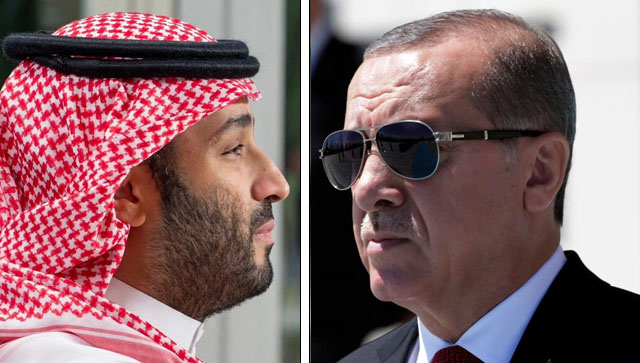In the complex and ever-evolving landscape of West Asia, the nations in the region are quietly working behind the scenes to broker peace amid ongoing conflicts. Leading the charge in these diplomatic efforts is Saudi Arabia, with Crown Prince Mohammad bin Salman recently taking a significant step by engaging in a phone call with Iranian President Ebrahim Raisi. This conversation marked the first direct dialogue between the two leaders after the restoration of ties between their nations.
The discussions between MBS and Raisi primarily revolved around the urgent need for peace in the region. Both leaders expressed their solidarity with Palestine and voiced concerns about the well-being of civilians caught in the crossfire. Furthermore, they emphasised the importance of adhering to international law, reflecting a shared commitment to resolving ongoing conflicts in a just and lawful manner. Iran, on the other hand, went a step further by placing blame on both Israel and the US. However, the conflict in West Asia has attracted a multitude of stakeholders beyond Saudi Arabia and Iran. Countries such as Qatar, Egypt and Turkey are actively involved in peace efforts. Among them, Qatar stands out due to its unique connection with Hamas as it hosts the political office of the Palestinian group. Doha has been engaged in talks with several influential nations including the United States, Turkey, Jordan, Iraq and the UK. While specific details of these discussions remain limited, many suggest that talks of a prisoner swap were underway. But those negotiations appear to be on hold for the time being. Egypt, on the other hand, plays a crucial role as the gatekeeper of the Rafah Crossing, the sole access point in and out of the Gaza Strip not controlled by Israel. Gaza has a total of seven border crossings, with six of them controlled by Israel. Egypt has historically been a key mediator in West Asian conflicts including during the 2021 Gaza War. However, the current situation is somewhat different with Egypt focused on its forthcoming elections and taking a more cautious approach. Reports suggest discussions on providing aid but any plans for a safe passage have been rejected possibly due to concerns about the influx of refugees into Egyptian territory. Turkey, led by President Recep Tayyip Erdogan, maintains an active role in the region. Erdogan has been in talks with Hamas seeking to negotiate the release of hostages. Turkey’s historical ties with Hamas make these efforts a continuation of their ongoing relationship. Although progress on this front has been limited, Erdoğan remains committed to facilitating dialogue among West Asian leaders including those of Israel, Palestine, Lebanon, Qatar, Saudi Arabia and Egypt. He has also condemned the recent attacks on Gaza. Jordan, as the custodian of the Al-Aqsa Mosque, has consistently been a stakeholder in the Israel-Palestine conflict. Recently, Jordan sent its first aid plane to Gaza intending to deliver aid through the Rafah Crossing. However, the actual delivery depends on permissions and conditions. While West Asian nations are intensifying their diplomatic and relief efforts, some like the UAE, Morocco and Bahrain face a delicate balancing act. Despite normalising ties with Israel, they must navigate the divide between official commitments to Israel and public sympathy for the Palestinian cause. The Abraham Accords, which aimed to usher in an era of peace and prosperity, have struggled to address the root causes of the ongoing conflicts. Normalisation of relations between Arab nations and Israel often equated economic cooperation with political peace, which has proven to be a complex and aspirational goal. While the region grapples with its complex geopolitical dynamics, a more stable and peaceful West Asia is perhaps desired by all, even as the challenges persist. Views expressed in the above piece are personal and solely that of the author. They do not necessarily reflect Firstpost’s views. Read all the Latest News , Trending News , Cricket News , Bollywood News , India News and Entertainment News here. Follow us on Facebook, Twitter and Instagram.


)

)
)
)
)
)
)
)
)



